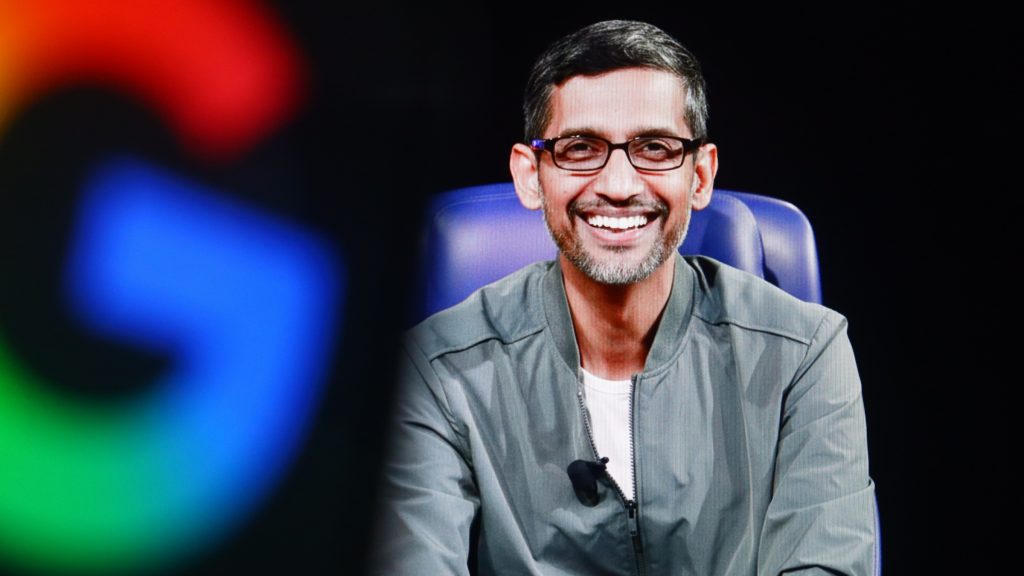
On Monday, Google’s CEO warned world leaders and tech execs that “no company is going be immune” from the potential existential dangers of advanced artificial intelligence (AGI) if the current AI doom theories about the tech’s uncontrolled evolution prove correct, during an BBC interview.
Sundar Pichai’s comments, made during a high-profile economic forum, accentuate the public’s fears as Silicon Valley faces fears of AI doomsday scenarios, with tech giants pouring billions into data centers, chips and research while investors chase high promises of future profit.
The boom has lifted Alphabet’s – Google’s parent company – value to $3.5 trillion in just seven months, but analysts warn the sector may be heading towards an AI doomsday clock that fundamentals cannot support.
Pichai’s warnings place Google’s more cautious, governance-driven approach in opposition to Meta’s aggressive accelerationism. Meta’s CEO, Mark Zuckerberg, prioritizes AI’s development, believing that throttling AI’s progress is not the win that people think it is.
Uncontrollable AI Bubble and Market Volatility
Speaking to the BBC, Pichai described AI doomsday prediction as “extraordinary” but warned there was “irrationality” in the fast rise of AI valuations. When asked whether Google could escape the consequences if the bubble bursts, he replied, “I think no company is going to be immune, including us.”
The Alphabet-owned giant’s CEO’s AI doomsday theory mirrors the US Federal Reserve concerns about “irrational exuberance,” and compares it to the late 1990s dotcom bust that wiped out early internet firms and destroyed savings.
“We can look back at the internet right now. There was clearly a lot of excess investment, but none of us would question whether the internet was profound,” Pichai added.
The AI threatening humanity concerns go beyond Google.
JP Morgan CEO Jamie Dimon recently warned markets were more fragile than many assume, adding that AI would “pay off” eventually but that some investments would “probably be lost.”
He urged investors to see the superintelligence threat that the current climate as unusually volatile, arguing that “the level of uncertainty should be higher in most people’s minds than what I would call normal.”
OpenAI’s massive deal ecosystem worth nearly $2 trillion despite far smaller revenues has also drawn scrutiny. Analysts fear an AI catastrophe mitigation which could collapse confidence across the entire sector.
AI Doom Accuracy, Energy Pressure, and Competition
Playing out between the world’s most influential tech giants lies in the fundamental disagreement over the speed and ethicality of AI deployment. It is the same disagreement that leaves policymakers maneuvering between whether to prioritize a defensive posture against hypothetical catastrophe threats, or an offensive one in a global technological competition.
Pichai also urged the public not to over rely on AI systems due to an AI existential threat, stating that, “People have to learn to use these tools for what they’re good at, and not blindly trust everything they say,” acknowledging that AI doom models are “prone to errors,” and said Google includes disclaimers because, “the current state-of-the-art AI technology is prone to some errors.”
Google has faced criticism due to the consequences of AI and inaccurate AI Overviews in search and chatbot missteps, underscoring the tension between rapid innovation and reliability.
“We are moving fast,” he said, but Alphabet is trying to be “bold and responsible at the same time.”
Pichai also highlighted the “immense” energy demands to prevent AI failure, which accounted for 1.5% of global electricity use last year. He admitted Alphabet’s climate goals had slipped, noting, “The rate at which we were hoping to make progress will be impacted,” but said the firm still aims for net zero by 2030.
Alphabet is expanding in the UK with a $6.57 billion (£5bn) AI investment and plans to “train our models” locally, with ministers believing it could help make Britain a top three global AI power.
Despite the unforeseen AI threat, Pichai insisted AI remains “the most profound technology” of our time, one that will disrupt jobs but also create new opportunities. “People who learn how to use these tools,” he said, “will do better.”
Inside Telecom provides you with an extensive list of content covering all aspects of the tech industry. Keep an eye on our Intelligent Tech sections to stay informed and up-to-date with our daily articles.